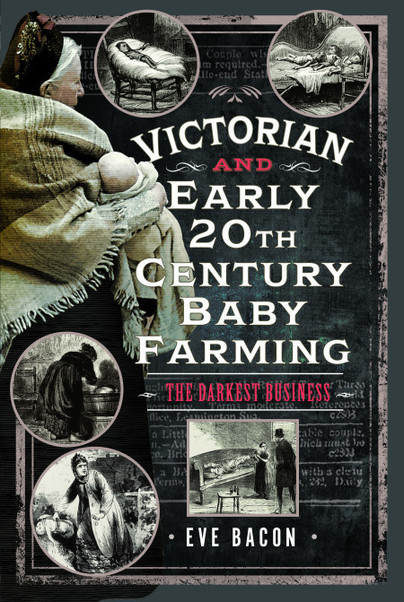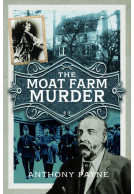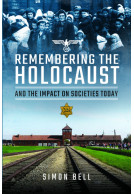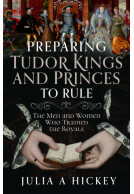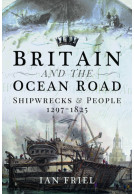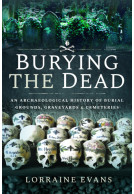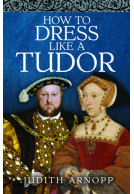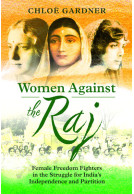Victorian and Early 20th Century Baby Farming (Hardback)
The Darkest Business
Imprint: Pen & Sword History
Pages: 240
Illustrations: 30 mono illustrations
ISBN: 9781036110567
Published: 11th November 2024
(click here for international delivery rates)
Order within the next 5 hours, 57 minutes to get your order processed the next working day!
Need a currency converter? Check XE.com for live rates
| Other formats available | Price |
|---|---|
| Victorian and Early 20th Century… ePub (15.9 MB) Add to Basket | £14.99 |
Mrs. Amelia Dyer was probably the most notorious baby farmer, but she was not working in isolation. The wider story of the myriad of others also classed as baby farmers is told here. Detailing the stories of over 100 baby farmers, the good, the bad and the murderous, it looks at why baby farming became so prevalent during the Victorian period. Why did so many mothers choose to hand their babies over to the care of these people, usually, women? What ‘care’ was meted out to the innocent victims of these crimes? How did baby farmers come to the notice of the authorities, and how did the police track down the perpetrators of this darkest of businesses? What were the punishments meted out to them? And how, eventually, the practice was brought to an end? Find the answers to the questions about the darkest business to be carried out during the Victorian and early Twentieth Century periods in this book that traces the stories of so many baby farmers, many of whom have not had their stories told before. Was there a baby farmer in your family? Did one of your ancestors survive a baby farmer, or had they found a good family to give them the love and care a child needs? This book not only tells of a business that has long gone for its historical interest, but also, can be of use to family historians, and social history researchers.
Rating: 5 out of 5 stars
NetGalley, Tara Keating
Such a great read, something I hadn’t thought about much but was so intriguing and interesting to learn about, Eve Bacon is a really good writer she really makes it engaging and is clearly well knowledgeable and researched
This book is useful for family historians and social history researchers examining the Victorian business of Baby Farming and its significance, the business that was abused by a notorious murderess Amelia Dyer and others of her like. There were various reasons for ‘baby farming,’ in 1834 The Poor Law Amendment Act was passed which required each parish that had a workhouse to set up a board of guardians. No longer would parishes be able to give financial support to those unable to support themselves. Instead, the destitute were to be taken into the workhouse and this included mothers and their illegitimate children. Children over 12 months were separated from their mothers who had no option but to put their children in the workhouse while working themselves at jobs that paid too little to support both themselves and their children.
Ian White, Cumbria Local History Society
Workhouses were reluctant to accept children who came from outside their own parish, as a result workhouses found themselves with an abundance of children and needed to find accommodation for them elsewhere. Dickens drew attention to this situation in his reference to infant Oliver Twist being placed with Mrs Mann, a baby farmer. The baby farmer, takes children from the workhouse and feeds them barely enough for survival in order to retain as much money given for their support for her own survival. Family poverty was one reason why so many children were being sent to workhouses, but the 1834 Act’s bastardy clauses also stopped the requirement of the fathers of illegitimate children paying for the child’s keep. Once this was removed women became vulnerable to poverty. In 1861 when the Offences Against the Persons Act became law desperate women who may have considered an abortion became illegal for the mother and abortionist. Given all these restraints many had little choice but to rely on the seemingly kind women who agreed to care for the illegitimacies.
Baby farming became an industry, seemingly innocuous advertisements appeared in newspapers tempting many women to pay a premium for their offspring to be adopted into caring loving families when in fact, they were probably handing the baby over to a person only interested in keeping the premium not the child. Another change that came about during the Victorian era that aided the baby farming industry was the growth and development of the railway system enabling travel to other areas of the country to meet mothers. Gladstone’s Railway Act of 1844 allowed third-class travel at a cost of no more than a penny per mile. In response to this, the number of railway passenger journeys increased from 1838 to 1911 and became quick and inexpensive, thus allowing the transfer of children to be far more anonymous than was previously possible. Baby farming was eventually stopped completely in 1939 when the Adoption of Children (Regulations) Act came into force. This Act ensured that that adoption societies needed to be registered, the last two clauses made baby farming, at last, the abominable practice a thing of the past.
Eve Bacon has put together an extremely interesting account of a nefarious industry of which little is currently known, details of a number of well researched cases, the roles of the midwife, coroner, children’s home, fraud, cruelty, manslaughter, murder and the fight to protect the vulnerable. Did one of your ancestors survive a baby farmer, or had they found a good family to give them the love and care a child needed? The book has a number of fascinating revelations of essential guide to us family historians. The author followed a career as a teacher of English indulging her love of social history as a reenactor showing the lives of ordinary women living in various historical eras eventually becoming fascinated with the Victorian period, including becoming a Queen Victoria impersonator. At the other end of the social scale, she developed a character led talk on Amelia Dyer.
In passing: Amelia Dyer, born Amelia Elizabeth Hobley 1837-1896, popularly dubbed ‘The Ogress of Reading’ was credited as being one of the most prolific murderers in British history sentenced to be hanged in 1896 for the murder of more than 400 infants although only six deaths were actually attributed to her. She trained as a nurse in Bristol, was widowed in 1869 when she turned to baby farming. Her downfall was a package retrieved from the River Thames by a bargeman, which contained the body of a baby girl, the package included an address label!
With thanks to Eve Bacon for a real eye-opener and Pen and Sword Books for an extremely fascinating book.
Rating: 5 out of 5 stars
NetGalley, Lauren Hewitt
What a well researched and interesting book. This takes you on a disturbing venture into the history of baby farming and illegitimate children. The author did a phenomenal job with research and documentation. Great timelines and detailed information about both the baby farmers, the mothers and the children.
This was a fascinating read about something that was very common in the mid to late 1800’s.
Great book.
Rating: 5 out of 5 stars
NetGalley, Lenja Seeker
This non-fiction book offers a comprehensive and well-founded insight into the dark chapter of baby farming in the Victorian era. Poverty and social constraints caused this business of commercial care for babies and children to boom. There were certainly caring carers, but there were also numerous black sheep who neglected, mistreated or even killed children. Such cases were rarely fully uncovered and punished. Well-researched and comprehensibly described facts in this book paint a portrait of the time and its society. Contexts and backgrounds become more comprehensible, even if you cannot, of course, fully empathize with every facet of the time. Numerous historically documented individual cases have been meticulously compiled, which I have never found in such quantities anywhere else. A book that is absolutely worth reading for anyone who has a historical interest in the time or in the notorious baby farms in particular.
This was an interesting and enlightening read about a topic many people don’t think about today let alone understand. Eve Bacon did a wonderful job explaining a part of history that has long been overshadowed or forgotten, but led to important legislation to protect children.
NetGalley, Ashley Hess
Rating: 5 out of 5 stars
NetGalley, Rachael R
This is a well-researched book on the fascinating and dark history of baby farming. I liked the case histories and the structure of the book, which tells the story of how this industry operated. It was horrifying to discover that baby farming was made illegal as recently as 1939, and it is a salutary reminder why regulations are needed today in child care.
The author explores many specific cases and details an appalling series of law changes and social conditions which gave rise to baby farming and allowed it to flourish. The book is well annotated throughout and the text is enhanced by facsimiles and archival photographs from the time period. The chapter notes are extensive and probably worth the price of the book for reference purposes alone.
NetGalley, Annie Buchanan
Four stars. It's a sad but important read. It would be a good choice for public library acquisition, home use, or gift giving to a history/genealogy interested recipient.
Rating: 5 out of 5 stars
NetGalley, Anita Wallas
Eve Bacon’s book about baby farming is truly heartbreaking. It’s difficult to imagine the horrors of this appalling industry and get to grips with those who profited from it. I was aware of a single case if baby farming but had no idea of how extensive it was and Eve Bacon’s research is incredible. She explores the reasons behind the industry but more than that, she goes into detail about how the perpetrators were identified and brought to justice. It was prevalent in numerous areas of the country and even allowing fir the difficulties of poverty and deprivation, I find it difficult to understand how this business thrived. It’s unspeakably sad and I was surprised by the fact that the practice went on into the early part of the twentieth century. It’s an important slice of social history, but be prepared to be appalled by some of the horrors contained within.
A clearly very well-researched endeavour into the dark and sordid history of baby farming, this was a really interesting read. The ideas that people come up with to keep themselves afloat financially never cease to amaze and disgust.
NetGalley, Krystelle Fitzpatrick
While I was already aware of baby farming as a practice and some of the history behind it, I found this book dived into each of the cases in fascinating granularity. There is an approach in this book of pure fact, while also ensuring that the historical documentation is well-evidenced and clear. I found the images at the end were particularly poignant, and they lent a sense of appalling weight to the book.
This is a meticulously researched and highly readable book about the shameful practice of baby farming in the 19th & early 20th century. The author gives a detailed account, pieced together from contemporaneous newspaper articles and other sources, of a dreadful episode in history.
NetGalley, Pippa Elliott
The books walks us through the background to baby farming, which was that fathers were not held responsible for financial maintenance of their illegitimate children. This burden fell on the mother, who may have been raped (as many women in service were) and often had to work or face starvation and were therefore in no position to raise a child.
Unless they had family support, these unfortunate women faced unpalatable choices. Some took the option of ‘farming out’ their baby, in ignorance of the fate that awaited. They responded to adverts in the newspaper, offering exemplary care, and handed their precious children over at railway stations. Little did they realise that the money they scrimped and saved to finance the child’s care would not reach the baby, who would be fed on flour and water or chalk and water, and most likely starve to death. The most unscrupulous carers even asked the mother for money to call a doctor to the sick child, with no intention of doing so.
Baby farming seemed to take off in the 1860s. There was profit in volume, the more children taken on, the more the ‘carer’ could earn. However, this was a mathematical exercise in earning money, and cases of extreme neglect were common. Part of the problem being infant mortality was high anyway, and many times the doctor wasn’t called until the baby was in extremis. Then it was difficult to tell a child that was skin and bone due to an underlying health condition or because they had been starved.
Another contributing factor was the practice of life insurance for infants. This was another lucrative source of income – insure the life of your wards, and then get a pay out if they died. And if the carer came under suspicion, they would do a flit and simply change name and location, to start up again. Such legislation as there was, was either ignored or the enforcers were overwhelmed.
However, prosecutions were made, which the author giving many examples in the text. And there was hope on the horizon, when Lord Shaftesbury established London Society for the Prevention of Cruelty to Children, in 1884, and I can highly recommend this book for anyone interested in the social history of this time.
A fascinating yet gruesome book that sheds light on yet another dark time in our past.
NetGalley, Lisa Berard
Rating: 5 out of 5 stars
NetGalley, Jamie Carter Park
I love the way this book is compiled with all the dates and links between the people involved in each case. This is how I like to write my own non fiction books. I learned a lot from this book about why we have the laws we have. I had no idea absolving men of responsibility led to this, but of course that makes sense. Also the stuff with the feeding broke my heart, but that is why we have formula now.
I fear that America is sliding back into this because do not have affordable daycare or housing. What else are people going to do?
Thank you SO much for granting my wish to read this book. I always wanted to learn more about how baby farming came to be and how it was dealt with in the moment.
Rating: 5 out of 5 stars
NetGalley, Tracy Shephard
Thank goodness times have changed..
Mis Dyer is an horrendous woman and what she did for nothing more than making money was grounds to secure her place in Hell..
That said.. this is an interesting read and one that made me think about the life and times of all involved. The mothers of babies the women who were supposed to care for the children after and the law..
I love historical reads and this is both chilling and intriguing, I learned a lot and the author has obviously done her research well.
Rating: 5 out of 5 stars
NetGalley, Karen Bull
Very interesting book.
Highlighting the terrible baby farming that happened.
This book is respectful to all the babies who lost their lives.
Well written.
Rating: 5 out of 5 stars
NetGalley, Louise Gray
Chilling in its level of detail about genuine cases, this book will shock many readers who may not have realised how recently baby farming was a common practice. The author takes us through case studies as well as explaining the legislative reform and social history surrounding how baby farming came to be a practice and how the community responded, including the introduction of laws against cruelty to children. It’s a fascinating book and so well presented, with a perfect blend of case studies and contextual facts. It’s important to remember histories such as these and the author has presented this in a way which certainly does not excuse or glorify poverty and neglect, but which does allow the reader to understand how such things can happen in the context of inequality, ignorance and disempowerment.
Rating: 5 out of 5 stars
NetGalley, Rachel Phillips
This was such an interesting read. I really didn't know anything about this but glad I read it. Very interesting.
About Eve Bacon
Eve qualified with a BEd(Hons) in 1987 and spent her working life as a teacher, specialising in the teaching of English. Alongside her career she indulged her love of social history as a reenactor showing the lives of ordinary women living various historical eras, ultimately on a semi-professional basis. Eventually, she became fascinated with the Victorian period, including becoming a Queen Victoria impersonator. At the other end of the social scale, she developed a character-led talk on Amelia Dyer, this research culminated in a presentation she has delivered to a variety of interest groups, including several family history societies, and she has featured as an expert in a BBC Radio documentary on the subject. Now retired from teaching, when she is not living in the past, she spends time either gardening or sewing, both with the ‘help’ of her little black cat.







